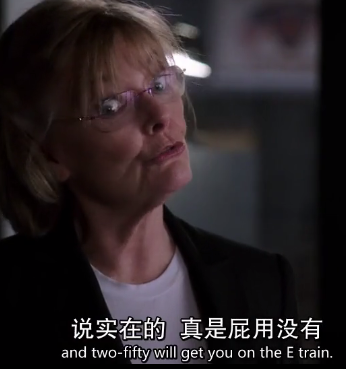There's a case in which a woman fell into the water. A key witness is missing. The female officer wants to focus on the case itself, but another male officer wants to focus on finding the missing witness.
She asks, "what if we couldn't find the witness?"
He answers, "we'll go ahead and give the jury what we have."
She replies, "What you have and two-fifty will get you on the E train"
What does that mean?

